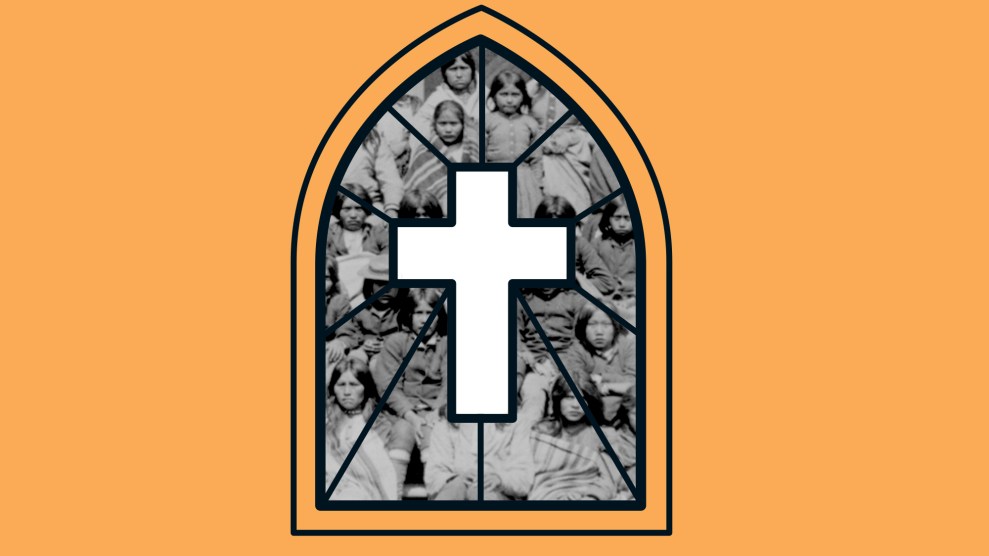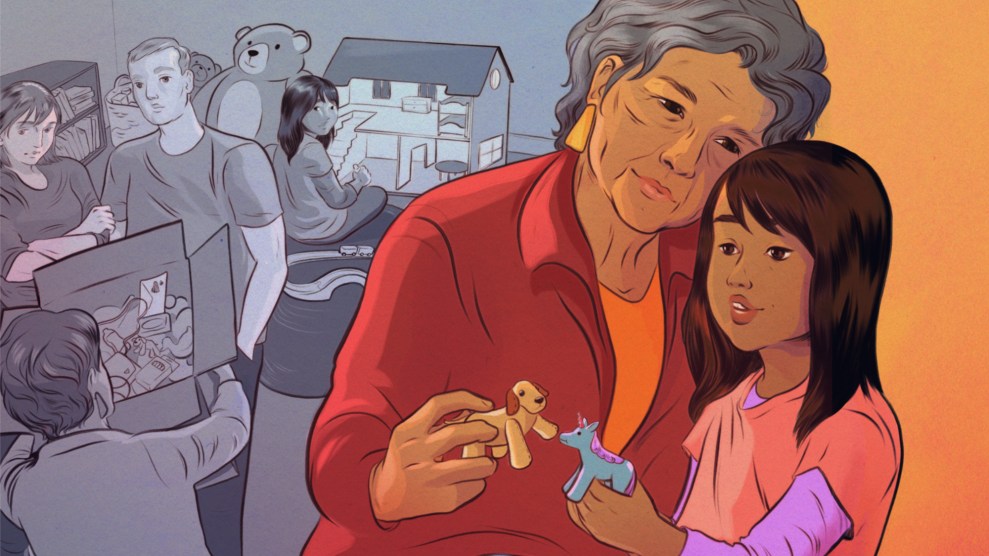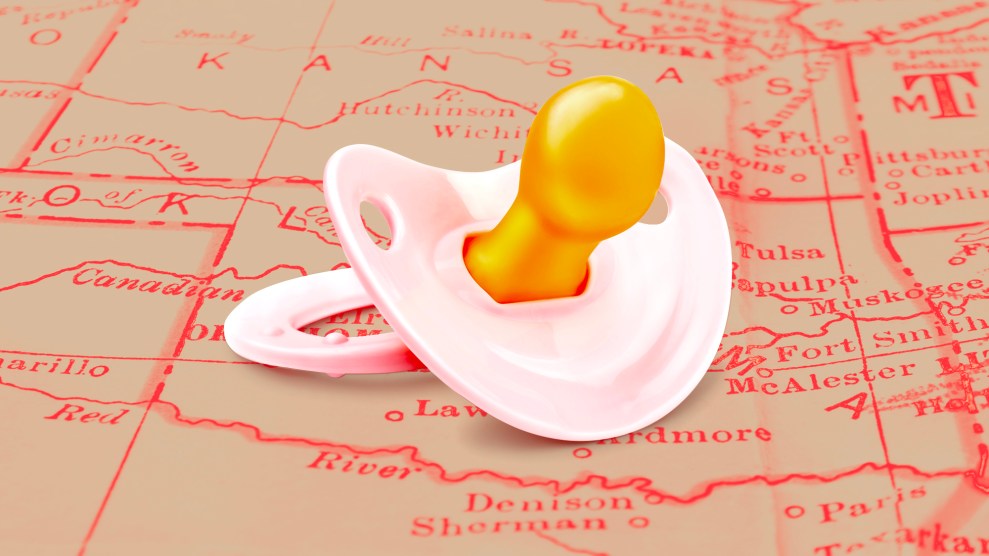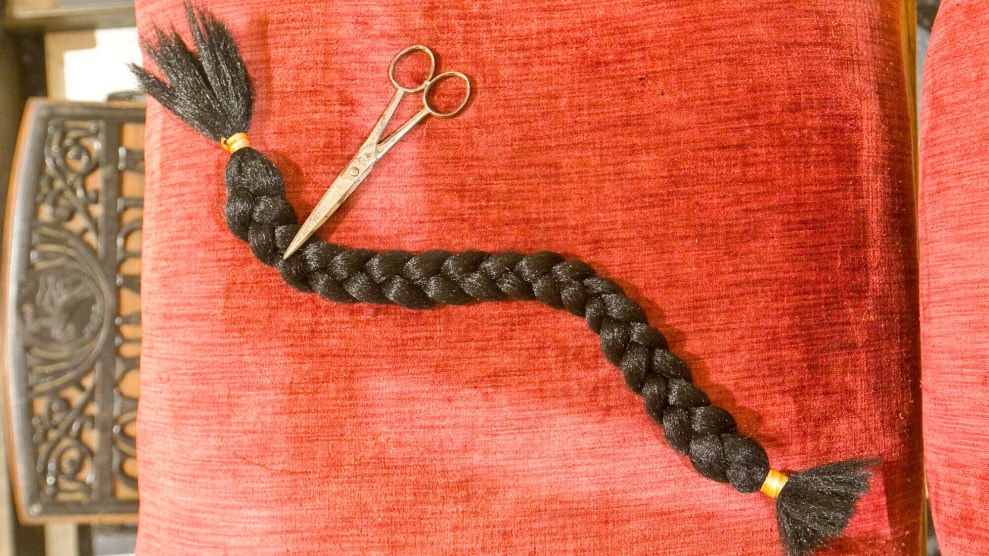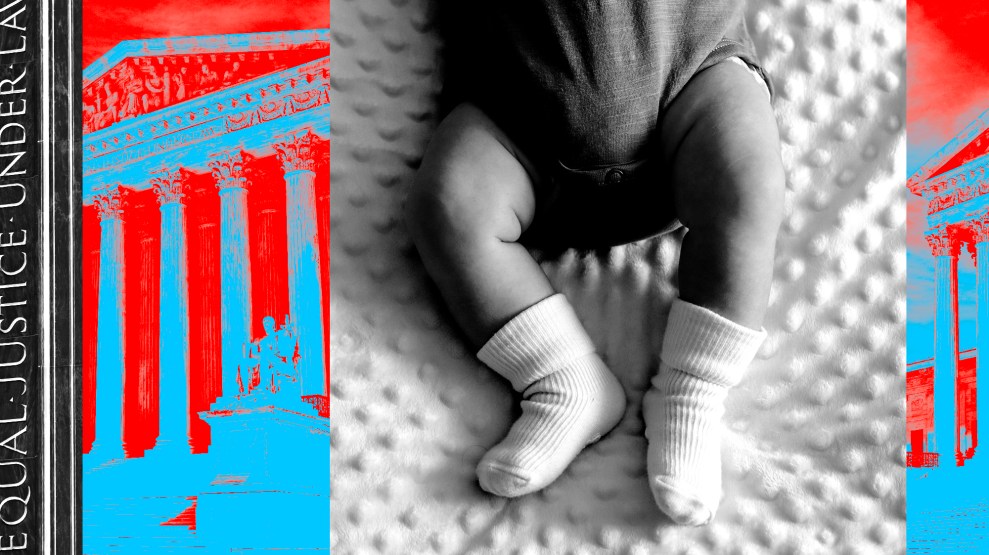
Mother Jones; Unsplash
The Supreme Court on Thursday upheld the Indian Child Welfare Act, the landmark 1978 legislation aimed at preventing Native foster children and adoptees from being separated from their families and tribes. The ruling in Haaland v. Brackeen represents a victory for Native tribes, who argued that the case threatened the basic tenets of Native sovereignty, and a blow to the plaintiffs—the state of Texas and three non-Native couples who wanted to adopt Native children—who argued to overturn the law based on racial discrimination and an overly intrusive federal government.
“This case is about children who are among the most vulnerable: those in the child welfare system,” wrote Justice Amy Coney Barrett in the majority opinion. “The bottom line is that we reject all of petitioners’ challenges to the statute, some on the merits and others for lack of standing.” Justices Clarence Thomas and Samuel Alito dissented.
The Indian Child Welfare Act (ICWA) requires states to make proactive efforts to place Native children with family members, members of the same tribe, or other Native families. In addition, the law allows tribes to intervene in foster placement and adoption decisions.
“Often, Native American Tribes have come to this Court seeking justice only to leave with bowed heads and empty hands,” wrote Justice Neil Gorsuch in his opinion. “But that is not because this Court has no justice to offer them. Our Constitution reserves for the Tribes a place—an enduring place—in the structure of American life. It promises them sovereignty for as long as they wish to keep it.”
ICWA emerged in response to a long history of Native family separation. By the time ICWA passed, in 1978, between 25 and 35 percent of all Native children had been taken from their families and put in foster homes, adoptive homes, or institutions, according to surveys by the Association on American Indian Affairs.
The plaintiffs in the Supreme Court case included the state of Texas as well as three sets of parents (including Chad and Jennifer Brackeen) who wanted to adopt Native children. Two of the three couples were ultimately successful in doing so, but all say they encountered unconstitutional barriers because of ICWA. The plaintiffs found support from a network of conservative groups, including the Cato Institute, the Goldwater Institute, and the Bradley Foundation. Gibson Dunn, the law firm representing the Brackeens pro bono, has represented several plaintiffs taking issue with laws specific to Native communities, including the corporation behind the Dakota Access pipeline.
“ICWA deprives Indian children of an individualized assessment of their best interests based on their blood,” wrote the Brackeens’ lawyer, Matthew McGill, in an email last year. “Our position is that, no less than non-Indian children, Indian children are entitled to a placement based on their best interests, rather than on stereotypes about what is good for Indian children as a category.”
ICWA supporters—including 497 tribes, 23 states, and 87 members of Congress—countered that the law’s focus on placing kids with their kin is the gold standard for child welfare policy reform. “All children would benefit from such a commitment,” read an amicus brief in support of the defendants, filed by dozens of child welfare and adoption organizations. Many legal experts argue that the law, like much of Native sovereignty, is based not on race, but rather on tribes’ unique political status. Some worried that a ruling against ICWA could mean “the unraveling of the legal structure that defends the rights of Indigenous nations in this country,” This Land podcast host Rebecca Nagle told me last year.
“We are overcome with joy that the Supreme Court has upheld the Indian Child Welfare Act,” wrote the National Indian Child Welfare Association in a recent statement. “The positive impact of today’s decision will be felt across generations.”
Correction: A previous version indicated Justices Sonia Sotomayor and Ketanji Brown Jackson agreed with Gorsuch’s opinion. They signed off on part, but not all, of the opinion.

